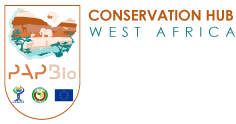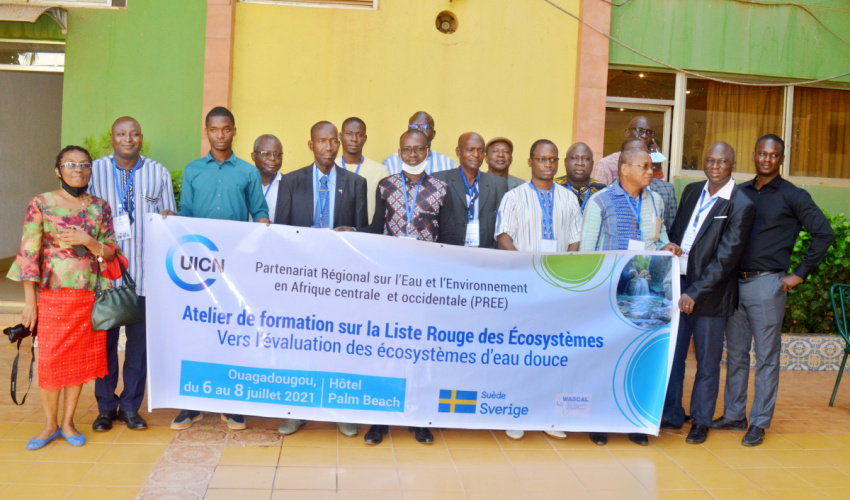The training workshop on the Red List of Ecosystems (RLE) – Towards the assessment of freshwater ecosystems was held from 6 to 8 July 2021.
It was organized by the IUCN Central and West Africa Program, within the framework of the Regional Partnership on Water and Environment in Central and West Africa (PREE), in collaboration with WASCAL (West African Science Service Centre on Climate Change and Adapted Land Use). The work took place online for the IUCN experts (Marcos Valderrábano, Sacha Zahnd and Verónica Ruiz) and face-to-face for the 15 participants gathered in Ouagadougou, Burkina Faso.
This workshop aimed to present the methodology and its applications for the implementation of the assessment of river and lake ecosystems in the sub-watersheds of Chari/Logone, Mono, the Inner Niger Delta and in the Fouta Djalon Massif. It was also an opportunity to present the planning of the work to be carried out with the experts.
During this meeting, the participants were informed about
the methodology, including key concepts, scientific evidence, examples of assessments conducted at national and global levels, and their applications
the set of 5 criteria (A, B, C, D, E) and associated thresholds for making evidence-based, scientific assessments of the risk of ecosystem collapse, as measured by the reduction in the geographic distribution or degradation of key ecosystem processes and components
the 8 collapse risk categories: collapsed (CO), critically endangered (CR), endangered (EN), vulnerable (VU), near threatened (NT), least concern (LC), data deficient (DD), and not assessed (NE);
not only how the criteria work together to assess risk, but also how this information can be used to inform different types of policy and management decisions.
Experts from each basin considered (Mono, Lake Chad, Inner Niger Delta, Fouta Djalon Massif) worked in groups to fill in the missing information in the database of (partial) information previously collected from the different basins.
Developed by IUCN on the basis of Resolution 4.020 adopted at the Fourth World Conservation Congress in 2008 in Barcelona, Spain, the IUCN Red List of Ecosystems (RLE) is a global framework for monitoring the conservation status of ecosystems. It is part of a toolkit for assessing the risks to biodiversity. The primary purpose of the IUCN ERL is to support conservation strategies in natural resource use and management decisions by identifying ecosystems at highest risk of biodiversity loss and collapse (Keith et al. 2013; Keith et al. 2015).
Participants developed and adopted a roadmap for moving forward.
 English
English
 Français
Français 
